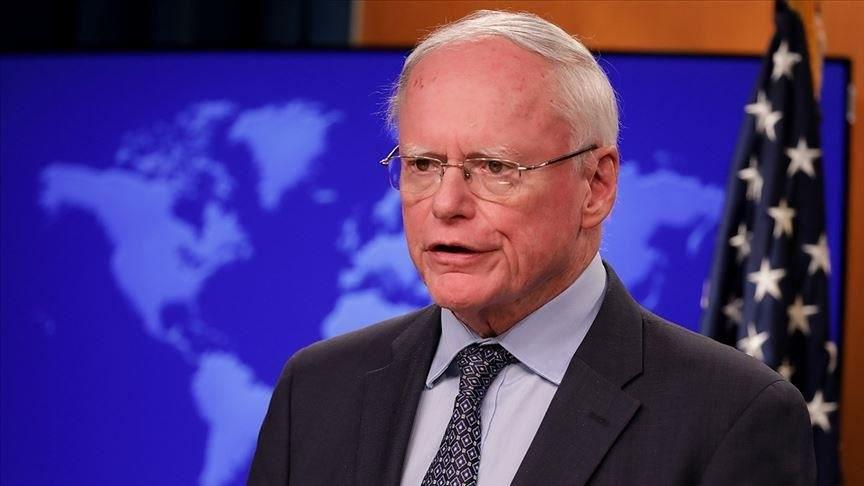The US Special Representative for Syria Engagement and Special Envoy to the International Military Intervention Against the Islamic State, James Jeffrey, confirmed that his country will not normalize relations with the “evil” Assad regime, except in one case, which is linked to the regime taking steps to adopt UN Resolution 2254, which is related to the political process in the country.
UN Resolution 2254, issued by the UN Security Council in 2015, divided the political process in Syria into four tracks, namely: transitional governance, the constitution, elections, and combating terrorism.
The announcement came during Jeffrey’s participation in an event organized by the Syrian Network for Human Rights (SNHR) and The Day After organization on Tuesday, on the sidelines of the United Nations General Assembly meetings, on the need for justice for the detainees held by the Assad regime amidst COVID-19.
“The regime’s crimes are known, and we have reports by the Independent International Commission of Inquiry on the Syrian Arab Republic, and many other organizations have talked about these crimes,” Jeffrey said.
“The US’ goal is to ensure the launch of a political process that brings about peace in accordance with UN Resolution 2254. We will not normalize our relations with the evil regime unless it takes steps to adopt the resolution, and nothing has been done towards that end so far,” he added.
The participants in the event heard the testimony of a former detainee in an Assad prisons, who was arrested with three of her children, while they were obtaining passports, and was detained for three years although she had committed no crime.
“I delivered twins in the detention center without any form of care or supplies. They just gave me water, while I was isolated from the world,” said Rasha Sharbaji, 38, who has five children.
According to opposition sources, the number of detainees in Assad’s prisons is at least 500,000, while the number of female detainees who were subjected to torture and rape is about 13,500 detainees, about 7,000 of whom are still detained in the basements of the regime.
This article was translated and edited by The Syrian Observer. The Syrian Observer has not verified the content of this story. Responsibility for the information and views set out in this article lies entirely with the author.


